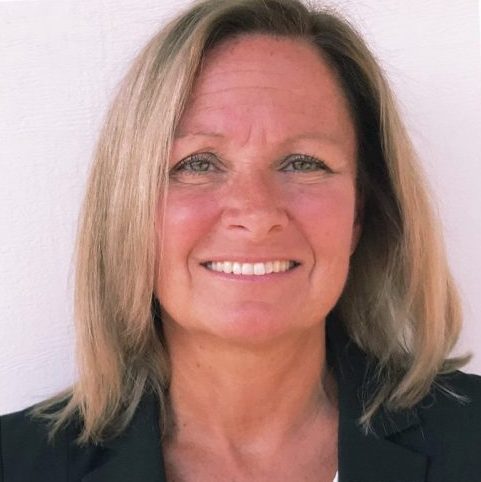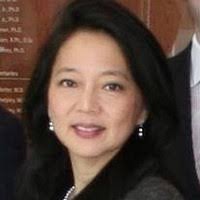
In Conversation with Susan McBee, Co-Founder and Partner at Law Firm McBee, Moore, and Vanik IP, LLC
Securing IP via deft patent and trademark strategies is a complex matter that requires experience, legal expertise, life science industry familiarity, and agility.
Founded in 2016, McBee, Moore, and Vanik IP (MMVIP) is a boutique IP law firm with big firm capabilities. The firm, which has locations in Frederick, Maryland, and Tysons Corner, Virginia, offers comprehensive IP services to pharmaceutical, biotechnology, chemistry and materials science, and medical technology companies of all sizes in the U.S. and overseas.
MMVIP will be hosting an IP webinar on the IP landscape in the field of immunology IP featuring Dr. Duen-Hwa Yan, Ph.D., after the holidays in 2021. We thought it was an opportune time to chat virtually with Susan McBee about the firm’s history, mission, and future.
Tell us about your career journey and how you came to co-found McBee, Moore, and Vanik IP.
Prior to co-founding our firm, I was a partner at a large DC-Metro area firm. In fact, all of our founders were at this same firm together.
At a more traditional firm, there are different practice groups and there can be a lot of overlap. All of us wanted to move away from a brick and mortar firm and start our own IP firm that could better leverage technology. We were ahead of the curve in that we realized that technology was moving really fast and we could use this technology to service clients in a better way. But we needed control, and we wanted to focus just on IP, so we took our entire group, which included 16 people, and founded our firm in early 2016.
One of the first things we did was set everyone up to work remotely by investing in and integrating new software tools. We knew we could service our clientele in a more efficient way. Our firm was near 100% remote even before it became necessary due to the pandemic. We now have about 25 staff and we’ve been growing since day one.
What are your firm’s core focus areas and what makes the firm unique?
To practice patent law and file applications and responses, there is a separate bar you have to pass, which is called the patent bar. Every member of our team is a member of the patent bar and qualified to practice in front of the U.S Patent Office, or USPTO.
Our unique focus is on the lifesciences and all but two of our lawyers hold Ph.D. or MDs in the field. Three of us, including myself, were also patent examiners in the USPTO earlier in our careers.
We offer services around patent prosecution and counseling, post grant proceedings, which are a cost-effective way to resolve patent and trademark challenges, and trademark preparation and prosecution.
We also do patent agreement and opinion work. Our patent opinion service helps clients double check their risks around launching a product by determining if the market is crowded or another patent is out there is close enough that it poses a threat. We provide litigation support, as well, and we can provide technical support to clients working with larger law firms on IP issues.
We’ve recently seen a big influx in trademark projects where we help clients understand where markets intersect, how to describe these marks, and which classes to file them in. Because we have deep technical expertise we can help tremendously in this area.
What patent challenges should smaller, emerging life science companies look out for?
One challenge is understanding that patent law changed in 2012. It used to be first and better was the rule. Whoever first invented, owned the patent. So if a company was first to file a patent on similar technology in 2011, they could lose the patent if another inventor could show they had data on the technology in 2009. Now, the first to file the patent essentially wins with a few exceptions. So, a company should not wait too long to file a patent because another company might have filed on the same concept and they won’t know for 18 months when it becomes public.
Another challenge is understanding how the patent process works and the timelines involved. Many times a company can get in the door by filing a provisional patent application, which gives them a twelve-month window of time to have an inexpensive way of drawing a line in the sand for their IP. After this 12-month window, companies cannot add to their application, so this first year is crucial. You need to start investing serious money at around twelve months and all data, for the most part, needs to be into the USPTO within that first year.
We offer our clients strategies for bridging this twelve-month gap. You need to figure out as much as possible about your invention during this 12-month provisional window and you don’t want to go small at the twelve-month threshold because you never get this patent time back. The first twelve months are critical and we’ve had great success putting our clients in the best possible position to succeed.
What role do IP and digital platforms play at MMVIP and how is this an advantage for your clients?
Our firm actually just recently registered its own trademark for what we call ‘Agile IP.’ We don’t take a file and wait, file and wait, ‘churn and burn’ approach to what we do. We are a lot more proactive and agile than that. We understand what it takes to be successful and we leverage the latest and best technology to deliver great service to our clients.
C.G. Moore, one of our Co-founders and partners, leads our IP efforts and has done an incredible job digitally transforming our firm. He was the brains behind this. What he developed and the vendors he selected has created a huge win for us and our clients. We are remote, we are paperless, and everything we do is interconnected, encrypted, and secure.
We can move very efficiently and quickly, which is a major advantage for our clients, as our ability to pivot rapidly and be more productive translates into better outcomes for them. We’re on the verge of migrating to a newer version of our software that’s next generation, so C.G. is always improving upon our IP capabilities.
Some emerging life science companies might see a bigger IP law firm as a better choice than a smaller, boutique firm like MMVIP. What is your counter argument to this perception?
There are a few reasons why we’re a better choice than a bigger IP firm. Some companies will go for big name recognition, and there are many really good big IP firms out there. Bigger firms will be more expensive and less flexible, particularly if you are a smaller organization like a startup. It’s hard for this big machine to do something smaller. And even if a big IP firm will take on a smaller startup, it is hard to be the smallest fish in a really big pond.
At our firm, this is not the case; we have some larger clients but a significant part of our portfolio is made up of smaller organizations. We can get back to you faster and you don’t get lost in a million files. We operate like a biotech group within a larger firm; we just don’t have all the other focus areas. We were #12 in biotech chemistry patents filed in the U.S., according to Harrity.
When we started the firm we only had large, multinational European companies. Now, we work with many smaller companies. We can leverage all of this experience for our clients.
MMVIP was one of only a handful of U.S. firms selected by the NIH for two, 10-year biochemistry and biotechnology IP contracts. What has this experience been like for the firm?
We were one of 14 firms picked by the NIH and we’ve learned a tremendous amount about how the NIH works even though the partnership has just really started.
Seeing the way the NIH works through different institutes and groups like the CDC and NAIAD, for example, is great. We’re doing some webinars for the NIH as well on important IP topics. We’re just overjoyed to be connected with the leading arm of the scientific community. This is a tremendous strength and we’re looking forward to learning more and more. The NIH connections we’re making are invaluable to us and what we do.
MMVIP has two locations, one in Tysons Corner, Virginia, and another in Frederick, Maryland. Why did your firm choose the BioHealth Capital Region and how has this been advantageous?
We are so close to so many important government agencies, including the NIH and the USPTO, which is a big advantage to being in the region. The biotech cluster here is vibrant and includes innovative, growing companies and a deep network of research universities. We’re really in the center of the patent and trademark universe.
We’re really excited about getting back out into the biotech and life science community once the pandemic ends. That’s something we all really miss.
Share your best pro-bono advice with emerging life science companies seeking a patent for their product or technology.
I have two pieces of advice.
First, don’t publish any journal articles about your idea before filing for a provisional patent.
Second, a company needs to have a defined and concrete IP strategy, even if this strategy is dynamic and changes over time. It is also important to make sure everyone involved understands the company IP strategy and buys in.
- About the Author
- Latest Posts
Steve brings nearly twenty years of experience in marketing and content creation to the WorkForce Genetics team. He loves writing engaging content and working with partners, companies, and individuals to share their unique stories and showcase their work. Steve holds a BA in English from Providence College and an MA in American Literature from Montclair State University. He lives in Frederick, Maryland with his wife, two sons, and the family dog.




